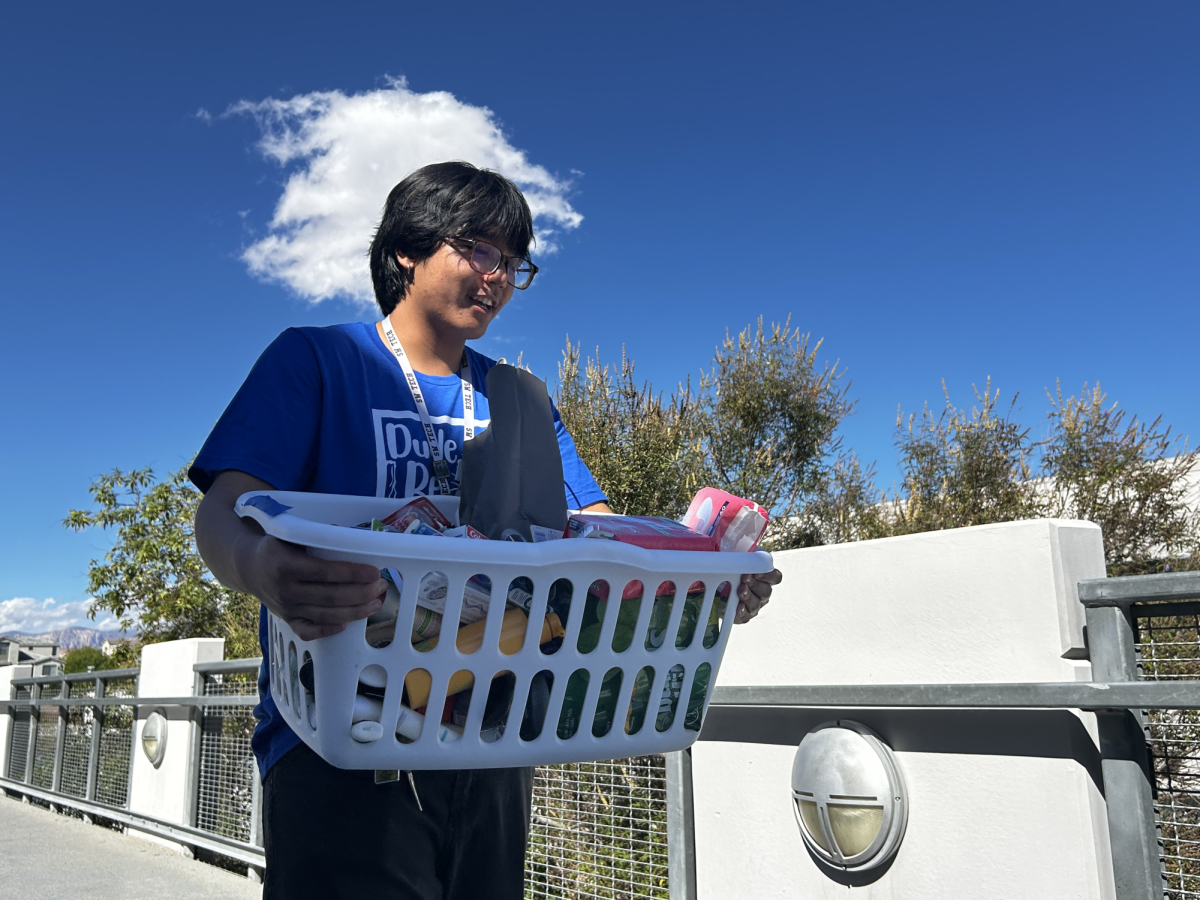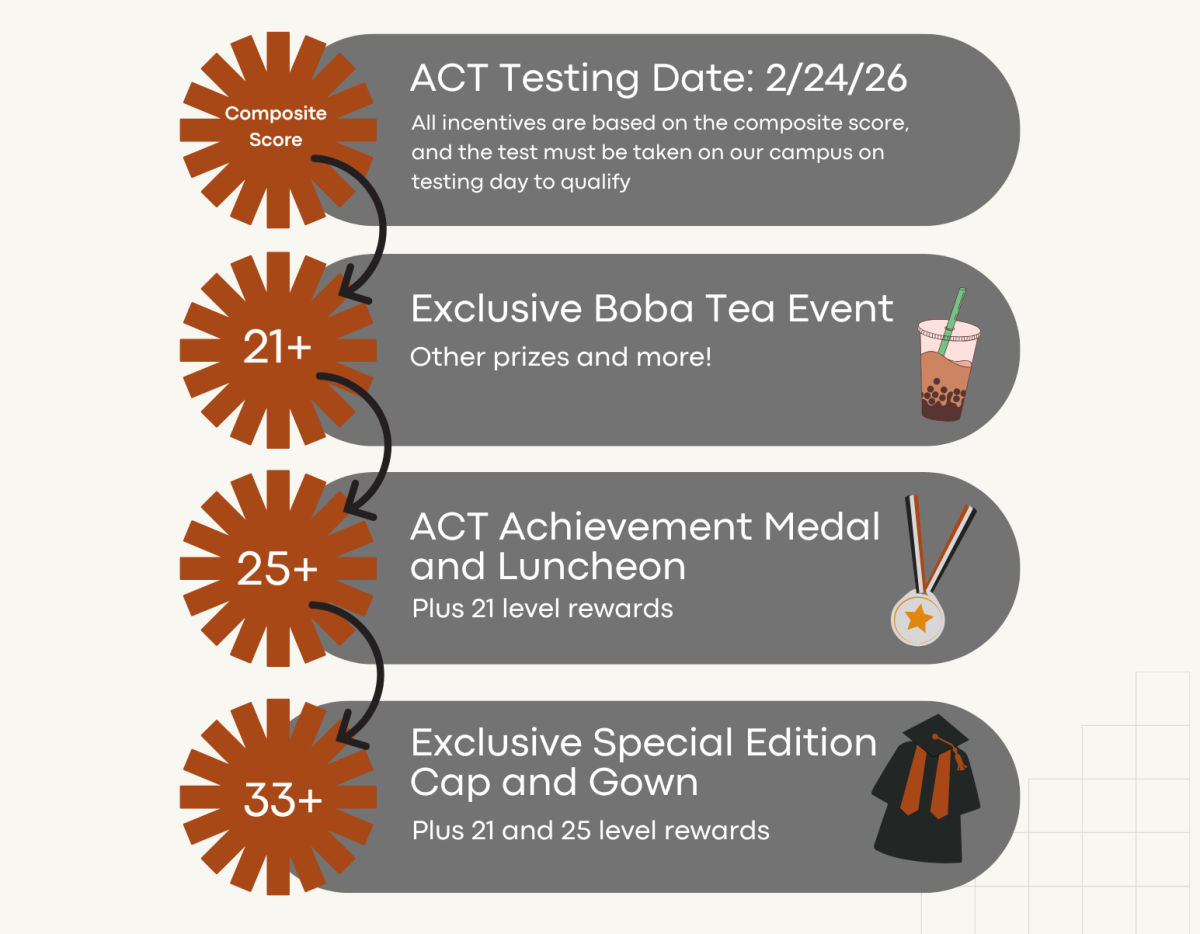Southwest Career and Technical Academy (SWCTA) is fully implementing its academic probation program. The program provides a structured chance for students not maintaining a 2.0 GPA or better in their classes to stay in SWCTA by helping them improve their grades.
For students to originally be accepted to SWCTA, they needed to have a GPA of at least a 2.0, and an exceptional behavior and attendance record. The school expects the students to maintain these standards during their time at SWCTA.
“If they were placed on academic probation, they aren’t doing well,” Mrs. Gia Moore, community partnership coordinator, says.
Students who earn below a 2.0 GPA for the first semester are given the chance to improve their academic situation. They must meet with their counselor to develop an improvement plan. This plan consists of a checklist that students must follow to improve their grades. These improvement plans may require students to attend a workshop or Saturday school to help elevate their grades and make up the credits they did not earn.
“SWCTA is preparing the students for college with higher expectations, therefore students are challenged more than a regular high school,” Moore explained.
The parents of these students will receive a letter from their child’s counselor stating that they are going to be placed on academic probation because of their performance.
After school tutoring is provided five days a week. Credit retrieval classes are also offered at SWCTA. The students can use a program called “Compass Learning”. During these credit retrieval classes, the students can make up the work they missed in school by doing assignments provided on the website.
“I sure hope [the program] will help them,” Mrs. Miriya Julian, learning strategist, says.
At the end of the year, the students will be re-evaluated to see if they adhered to the requirements of their plan. Students who are not attending tutoring or not following their academic plan will be released from SWCTA and will return to their zoned school for the next academic year.
“The number one rule is if the student is struggling or having a difficult time, don’t wait until the last minute to work,” Moore advises.
She also says students can avoid being placed on academic probation by forming study sessions, texting, Moodling, or e-mailing their friends and teachers for help in their studies.
“A smart student will know how to exchange phone numbers and network with others,” Moore says, “You can’t do it on your own, it’s a lot.”



![Displaying a QR code for students to scan, the flyer allows students to sign up and learn about their desired colleges as they visit throughout the school year. Many schools have had additional presentations for students to learn more about what they offer. “For me, I’m interested in criminal justice,” junior Zion Jefferson said. “I know that UNLV and Nevada State University have this major. But, [the college fair] is going to be beneficial, so I can see what other schools offer as well.”](https://southwestshadow.com/wp-content/uploads/2025/10/IMG_2721-1200x900.jpg)
![Working in the Student Success Office, Attendance Secretary Lordis Depiazza inputs a student’s absence excuse note. Students are required to bring an excuse note to the attendance office within three days of any absence. “Reminding students that being in school is important because it reflects towards your grades and being able to do any activities with the school,” Depiazza said. “[It] seems to get the students' attention about wanting to be in school.”](https://southwestshadow.com/wp-content/uploads/2025/10/IMG_8313-1200x800.jpg)
![Arranging the fabric on the floor for a new project, senior Sapphyre-Ann Leung plans out her attire for the next deadline. With the recent closures, students now had limited resources and less margin for error with the fabric and materials they had in stock while trying to reach strict deadlines. “Joann’s had a lot of high-end fabric for our fashion competitions,” Leung said. “We couldn’t just buy ten yards of fabric from Hobby Lobby or Walmart. Since [Joann Fabrics] is no longer open, we have to buy items online, which is way more expensive.”](https://southwestshadow.com/wp-content/uploads/2025/10/IMG_0038-1200x800.jpg)
